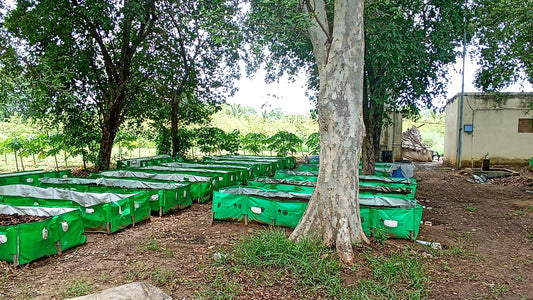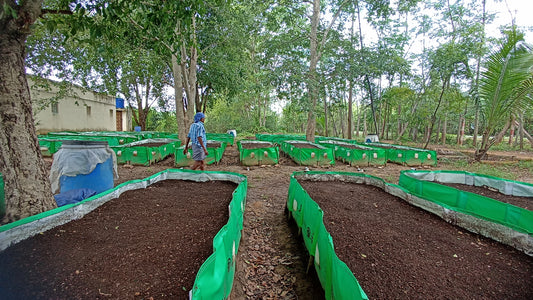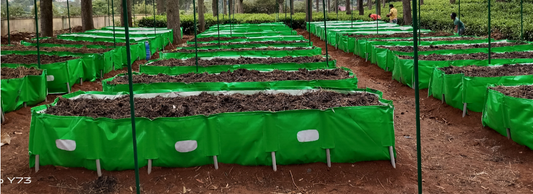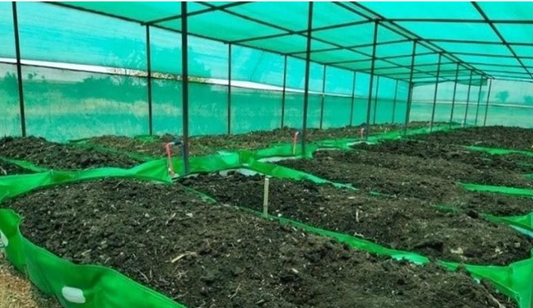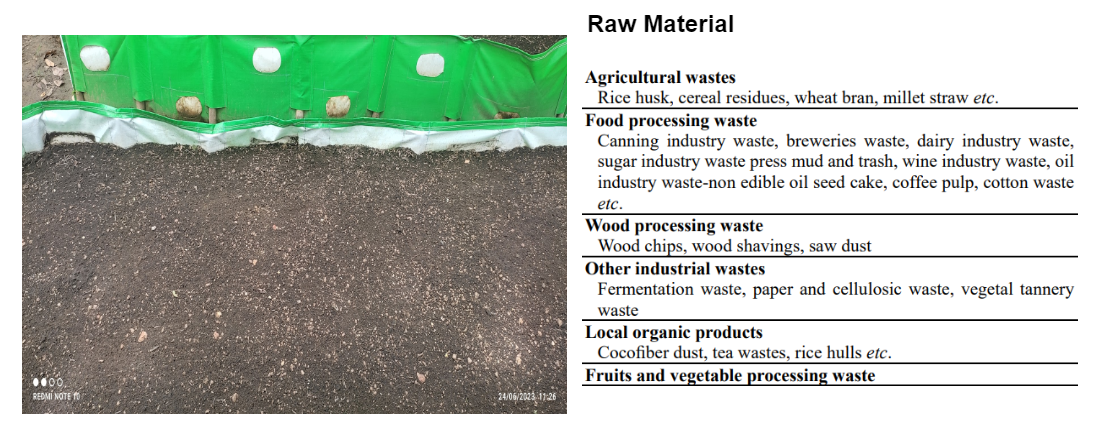Vermicompost
Vermicompost is a scientifically proven method of composting that utilizes earthworms to transform organic waste into nutrient-rich vermicompost. It is a natural and sustainable way to recycle organic materials and create a powerful soil amendment. Earthworms, commonly found in soil, play a vital role in this process by consuming organic waste materials and excreting them in the form of vermicasts. It is also known as “worm-farming”. It involves cultivating earthworms specifically for vermicomposting purposes.
Vermicomposting is a technique to add earthworms to enhance bacterial action on waste to create compost.
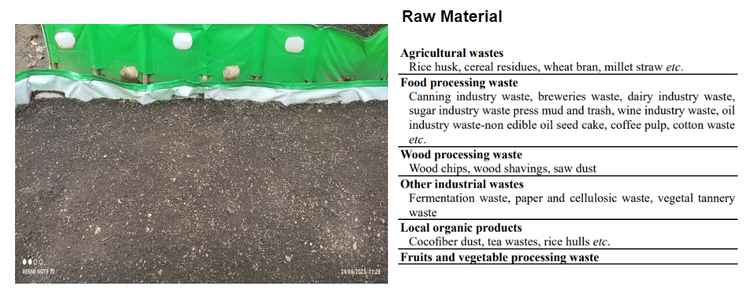
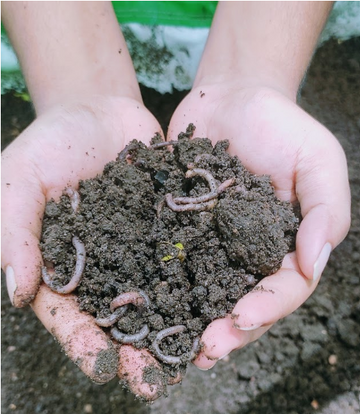
Impacts of Vermicompost
- Reduces landfill waste.
- Improves soil Health & Soil Quality.
- Help reduce greenhouse gas emissions.
- Enhances the immunity of the plants.
- Maintains soil ph.
- Increases the water holding capacity of the soil.
- Prevents Soil Erosion
Objective
Vermicompost provides a chemical-free soil enrichment solution, but small farmers encounter obstacles. Challenges include limited access to financials and constraints like lack of knowledge hindering vermicompost unit setup. Overcoming these barriers through training, and collaborations can empower farmers to adopt vermicomposting, unlocking its benefits for sustainable agriculture.
- The production and distribution of vermicompost products can create employment opportunities in various stages of the value chain.
- Creates Dignified employment for ex-serviceman, Rural women and Youth.
- Healthy soil ecosystems support diverse plant life and contribute to overall ecosystem resilience.
